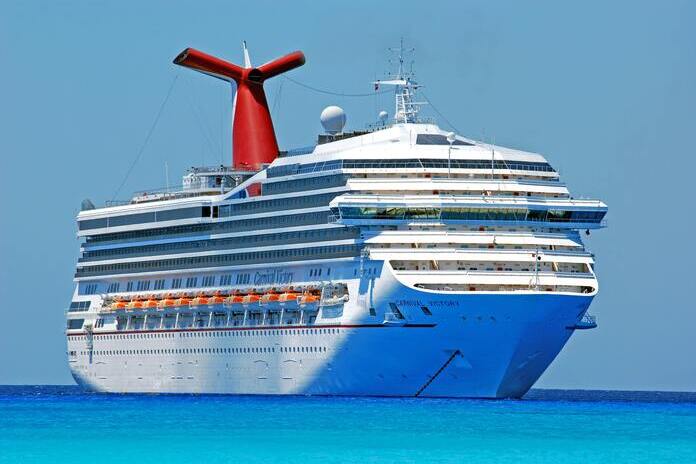Carnival Stock (NYSE:CCL)
The pandemic produced by the COVID-19 virus has wreaked devastation all across the world, with the tourism sector being one of the most severely affected. Particularly hard hit are the cruise companies, who have been forced to halt their operations since the beginning of the year 2020. The most recent financial statistics posted by Carnival Corporation, one of the largest cruise operators in the world, suggest that the company is beginning to see indications of recovery.
Carnival Posts Smaller Losses
The results of Carnival Corporation’s first-quarter financial operations for 2021 were announced, and the company reported a net loss of $2 billion. As compared to the same time period in the prior year, when the corporation reported a net loss of $4.4 billion, this amount may appear to be quite big; yet, it represents a significant improvement. It is possible to ascribe the increase in the company’s financial performance to the significant comeback in bookings, which has occurred as a result of customers beginning to feel more confident about traveling.
A robust demand for leisure travel, higher ticket prices, and robust on-board spending all contributed to the cruise operator Carnival Corp. reporting a quarterly loss that was less than anticipated on Monday while also beating projections for revenue.
When COVID-19 pandemic-related restrictions begin to lift, cruise companies such as Carnival, Royal Caribbean Group, and Norwegian Cruise Lines Holdings are reporting robust demand from passengers who have been cooped up and are unfazed by higher inflation.
The robust desire among consumers to go on vacations is one of the key factors contributing to Carnival’s better financial performance. As a result of the fact that many people have been confined to their houses for more than a year, there is a pent-up yearning to travel and investigate new locations. Arnold Donald, the Chief Executive Officer of the company, remarked that the booking volumes for 2022 are already higher than the levels for 2019, which is an indication of a robust recovery in the travel industry.
“We are still experiencing a record wave season, which started early, gained power, and has stretched further into the year,” said Josh Weinstein, the CEO of Carnival. “We are still experiencing a record wave season.”
The operator of Carnival predicted a larger-than-expected loss for the full year, which signaled that inflation and rising fuel prices were harming the company’s profit margins. As a result, Carnival’s shares dropped by almost 3 percent during morning trade.
U.S. airlines have, for the most part, been upbeat about the travel demand for the remainder of the year, shrugging aside concerns of a slowdown in demand and cost constraints. The chief executives of various airlines stated earlier this month that leisure travel is still doing well despite the fact that worries of a recession have spurred concerns about consumer spending.
According to the operator of Princess Cruises and Holland America Line, the company had the highest-ever quarterly booking volumes during wave season in both North America and Europe for all future sailings. These results were achieved for any quarter in the company’s history.
The occupancy rate for Carnival during the first quarter continued to be lower than 2019 levels. This summer, the cruise line operator anticipates reaching occupancy levels similar to those seen in 2019.
According to Weinstein, the remaining portion of the year is more than 70 percent booked for the company.
According to Derren Nathan, head of equity research at Hargreaves Lansdown, Carnival appears to be in a good position to return to cash creation even after accounting for capital spending and the costs associated with debt financing.
“That is not to say that everything is going swimmingly though since fuel and currency headwinds are still taking some wind out of its sails,” Nathan added. “That is not to suggest that it is all plain sailing though.”
In the first quarter of 2023, Carnival saw a positive cash flow from operations, and the company’s total liquidity increased to 8.1 billion.
According to Similarweb, a business that provides web analytics services, rival cruise line Virgin Voyages gained a considerable percentage of internet traffic in the months of January and February, which puts Carnival brands in a position where they must compete more fiercely for web traffic.
Revenue from onboard activities and other sources reached $1.56 billion during Carnival’s first fiscal quarter, representing 35% of the company’s overall revenue.
The company has not yet resumed operations in China, which according to the company accounted for 1 million visitors prior to the epidemic. But, the company plans to begin operations in Asia this summer with a ship that is currently in Taiwan and another ship that is currently in Japan.
According to Refinitiv’s estimations, the firm reported a quarterly adjusted net loss of 55 cents per share, which is lower than the loss of 60 cents per share that was anticipated for the quarter.
Sales increased to $4.43 billion, exceeding analysts’ expectations of $4.33 billion, after having been $1.62 billion a year earlier.
The company anticipates an annual loss of between 28 cents and 44 cents per share, which is significantly higher than the previous forecast of a loss of 8 cents per share.
Featured Image: Pexels @ Pixabay















